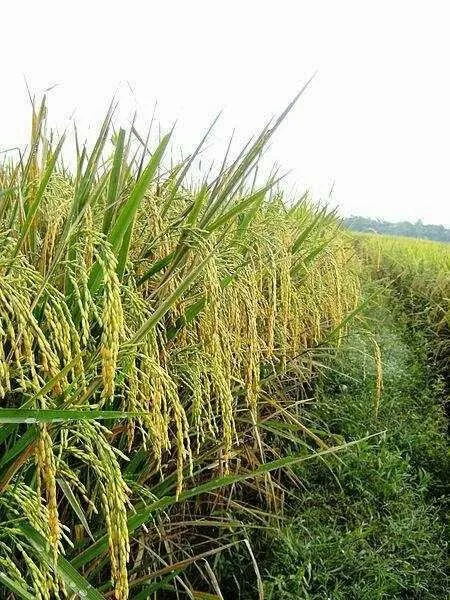for the steemit may be useful.
How has the quality of pangandunia crops in recent years? For the first time a field trial showed surprising results, that carbon dioxide has inhibited the assimilation of nitrate into protein so that the nutritional quality of food crops declines in climate change.
In a study led by a University of California - Davis plant scientist, Professor Arnold Bloom, scientists have tested the quality of food crops on wheat farms and found a decline in the nutrients therein.
The results of the food crop nutrition study are published in the journal Nature Climate Change, April 06, 2014.
#Food Nutrition Study And Food Crop Quality
According to Professor Arnold Bloom, the quality of food crops has declined due to the increase in atmospheric carbon dioxide that is currently occurring.
some descriptive explanations have been analyzed, but this is the first study to prove that high levels of carbon dioxide have inhibited the conversion of nitrates to proteins in the growth of food crops.
Assimilation (processing) of nitrogen plays a very important role in the growth and productivity of plants. In the case of food crops, this is very important because plants use nitrogen to produce proteins essential for human nutritional needs.
Like wheat that provides almost a quarter of the protein that the human body needs.


In previous research, other scientists have also proved that elevated levels of carbon dioxide in the Earth's atmosphere have inhibited the assimilation of nitrate in wheat and Non-Leguminous plant leaves.
But there is no evidence and verification on growing crops on farmland, and Professor Bloom has now proven the analysis with the same results.
Scientists have examined wheat samples grown in 1996 and 1997 at Maricopa Agricultural Center - Arizona, to observe the response of wheat to various levels of atmospheric carbon dioxide.
At that time, carbon dioxide levels were still mild in the atmosphere. Leaf food plant material is tested with various tests, then dried in the oven and stored in a vacuum (seal).

After more than a decade, Bloom's team analyzed chemistry that was not available at the time of the pangandipanen plant experiment.
They found three differences that should have existed as in the sealed leaf analysis of 1997.
This confirms that atmospheric carbon dioxide levels have inhibited the assimilation of nitrate into proteins in these very food crops.
Protein concentrations in wheat seeds, rice, and potato tubers, have decreased an average of about 8 percent due to increased atmospheric carbon dioxide levels.
The decline in nutritional food crops will affect human consumption, while atmospheric carbon dioxide levels in recent years continue to increase significantly and will continue to occur in the coming decades.
It is not impossible that humans will consume foods without high nutrition, physical changes and body size, if increased carbon dioxide is not responded early.

In other studies it has been mentioned that the world's crops will decline, this is also due to an increase in carbon dioxide levels.
The use of nitrogen fertilizers may compensate for a decrease in the quality of food crops.
But it also has high consequences including more expensive costs, while nitrates in the soil will actually increase greenhouse gas emissions or carbon dioxide.